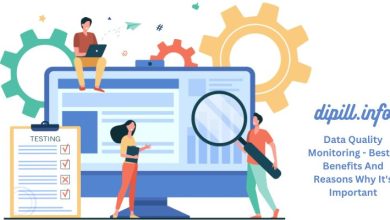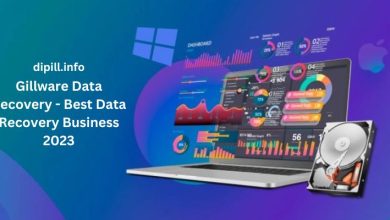In an era dominated by digital interactions and technological advancements, the importance of data privacy management cannot be overstated. As businesses and individuals alike generate and share vast amounts of data, the need to safeguard sensitive information has become paramount. This article explores the multifaceted landscape of data privacy management, delving into the challenges faced by organizations and individuals and examining strategies to ensure the responsible handling of personal data.
Contents
The Evolution of Data Privacy

The concept of data privacy has evolved significantly over the years, paralleling the rapid advancement of technology. In the early days of the internet, concerns about data privacy were relatively limited, as online activities were less pervasive. However, the rise of social media, e-commerce, and interconnected systems has led to an explosion of data creation and sharing, prompting a reevaluation of privacy norms.
A. Regulatory Frameworks
Governments and international bodies have responded to the growing importance of data privacy by implementing regulatory frameworks designed to protect individuals. Initiatives such as the European Union’s General Data Protection Regulation (GDPR) and the California Consumer Privacy Act (CCPA) have set new standards for the responsible collection, processing, and storage of personal data. Compliance with these regulations has become a priority for organizations operating in jurisdictions covered by such laws.
B. Privacy Awareness
The increasing awareness of privacy issues among the general population has also played a crucial role in shaping the data privacy landscape. High-profile data breaches and scandals have heightened public sensitivity to the potential misuse of personal information, prompting a demand for greater transparency and control over how data is handled.
Challenges in Data Privacy Management

Despite the progress made in establishing regulatory frameworks and fostering privacy awareness, organizations face a myriad of challenges in effectively managing data privacy. Understanding and addressing these challenges is essential for developing robust data protection strategies.
A. Data Security Threats
The constant threat of cyberattacks and data breaches poses a significant challenge to data privacy management. Hackers and malicious actors continually evolve their tactics, exploiting vulnerabilities in systems to gain unauthorized access to sensitive information. Organizations must invest in robust cybersecurity measures to safeguard against these threats.
B. Compliance Complexities
Navigating the complex web of data privacy regulations presents a significant challenge for organizations with a global presence. Compliance requirements may vary across jurisdictions, requiring businesses to develop comprehensive strategies that align with diverse regulatory frameworks. Failure to comply with these regulations can result in severe financial penalties and damage to reputation.
C. Data Proliferation
The sheer volume of data generated and processed by organizations can be overwhelming. Managing the vast amounts of structured and unstructured data poses logistical challenges, making it difficult to track and control information effectively. Implementing efficient data governance practices is crucial for mitigating the risks associated with data proliferation.
D. Insider Threats
While external threats are a significant concern, organizations must also contend with insider threats. Employees, intentionally or unintentionally, can compromise data privacy. Developing a culture of security awareness and implementing stringent access controls are essential components of addressing insider threats.
Strategies for Effective Data Privacy Management

To address the challenges posed by the evolving landscape of data privacy, organizations can adopt a proactive approach by implementing comprehensive strategies.
A. Privacy by Design
Integrating privacy considerations into the design and development of products and systems is a fundamental principle of effective data privacy management. By adopting a “privacy by design” approach, organizations can minimize the risks associated with data processing and ensure that privacy considerations are embedded in every stage of a project’s lifecycle.
B. Robust Cybersecurity Measures
Investing in state-of-the-art cybersecurity measures is critical for protecting against external threats. This includes the implementation of encryption protocols, multi-factor authentication, and continuous monitoring of network activity. Regular security audits and vulnerability assessments can help identify and address potential weaknesses in a timely manner.
C. Comprehensive Data Governance
Establishing a comprehensive data governance framework is essential for managing data proliferation. This involves defining clear policies and procedures for data collection, storage, and processing. Organizations should also invest in technologies that enable effective data discovery, classification, and lifecycle management.
D. Employee Training and Awareness
Addressing insider threats requires a focus on employee training and awareness. Organizations should provide regular training sessions on data privacy best practices, emphasizing the importance of responsible data handling and the potential consequences of privacy breaches. Implementing strict access controls and monitoring user activity can further reduce the risk of insider threats.
E. Continuous Compliance Monitoring
Given the dynamic nature of data privacy regulations, organizations must implement continuous compliance monitoring processes. This involves staying informed about changes in regulations, conducting regular internal audits, and leveraging technology solutions to ensure ongoing compliance. Collaborating with legal and compliance professionals can provide valuable insights into evolving regulatory landscapes.
Conclusion
Data privacy management is a dynamic and multifaceted challenge that requires continuous attention and adaptation. Organizations must recognize the importance of prioritizing data privacy, not only to comply with regulations but also to build trust with customers and stakeholders. By adopting a proactive approach that incorporates privacy by design, robust cybersecurity measures, comprehensive data governance, employee training, and continuous compliance monitoring, organizations can navigate the complexities of the data privacy landscape and establish themselves as responsible stewards of sensitive information. In doing so, they contribute to the broader goal of creating a digital ecosystem that values and protects individual privacy in an increasingly interconnected world.
Conclusion: So above is the Navigating the Complex Landscape of Data Privacy Management article. Hopefully with this article you can help you in life, always follow and read our good articles on the website: Dipill.info




